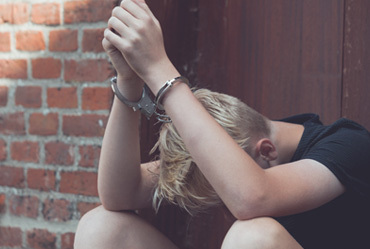Search

The legal profession that involves dealing with this particular aspect of the law focuses on the relation between the law and juveniles. They are exploring the fine line between the rights and the dignity of children as young people and their principle of holding such persons accountable for their deeds. Starting from delinquency and criminal responsibility ending with the rights of a juvenile, the welfare, and protection of the child, it is vital to pay due attention to the main principles of Juvenile Law.
Juvenile law is a critical component of the legal system that focuses on individuals under the age of 18 who commit offenses. It is designed to rehabilitate young offenders rather than punish them harshly, recognizing their potential for change. However, like any legal framework, juvenile law has its advantages and disadvantages. In this blog, we will explore the pros and cons of juvenile law.
One of the biggest advantages of juvenile law is its emphasis on rehabilitation rather than punishment. Since young offenders are still in their formative years, the law seeks to provide them with education, counseling, and community service instead of severe penalties. This helps in their reintegration into society as responsible citizens.
Juvenile law ensures that minors are treated differently from adults in the legal system. Their identities are often protected to prevent social stigma, and they receive legal representation to safeguard their rights. This humane approach prevents young offenders from being unduly penalized.
By focusing on rehabilitation rather than incarceration, juvenile laws help reduce the chances of young offenders becoming repeat criminals. Programs like vocational training, therapy, and mentorship help in reshaping their lives for the better.
Juvenile law acknowledges that minors are not fully mature and may make impulsive decisions. It offers them an opportunity to correct their mistakes without facing lifelong consequences, such as permanent criminal records that could impact their future education and employment opportunities.
Critics argue that the juvenile justice system is too lenient and may not serve as a strong enough deterrent. Some young offenders may not take the system seriously, leading to repeat offenses without facing severe consequences.
Juvenile law is not always applied uniformly. Factors such as race, socioeconomic background, and judicial discretion can influence sentencing outcomes, leading to disparities in how young offenders are treated.
Some believe that juvenile law does not hold young offenders fully accountable for their actions. If a crime is severe, such as murder or sexual assault, critics argue that the juvenile system may not deliver appropriate justice for victims and their families.
While rehabilitation is the goal, some juveniles who enter the system may still go on to commit crimes as adults. The lack of severe punishment may fail to instill a sense of responsibility and accountability, increasing the likelihood of future offenses.
Juvenile law is a complex and necessary aspect of the legal system that aims to balance rehabilitation with accountability. While it provides young offenders with opportunities for reform and second chances, concerns about leniency and repeat offenses remain valid. A well-structured juvenile justice system should focus on fair application, effective rehabilitation programs, and a balanced approach to justice to ensure both social protection and the welfare of young individuals.